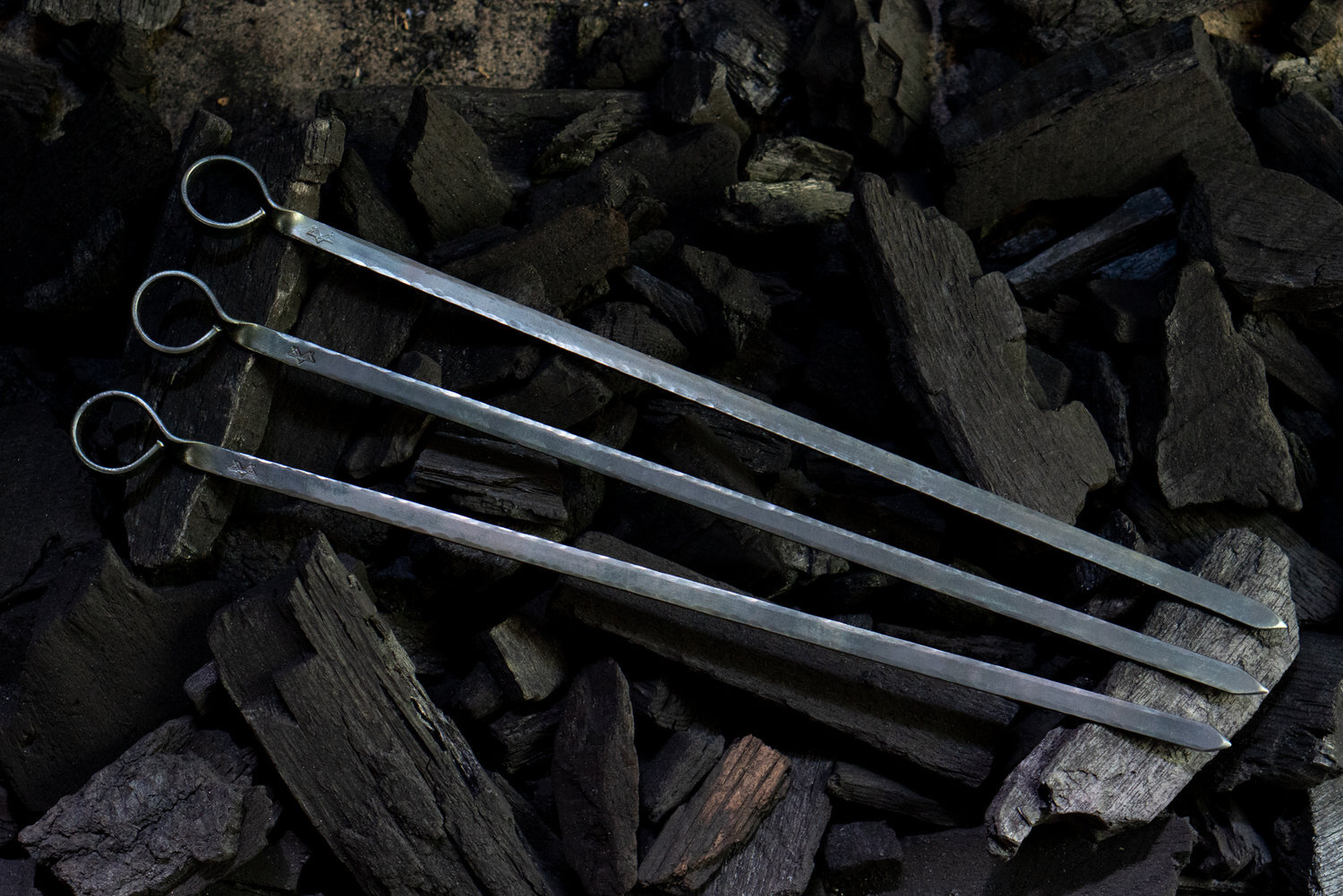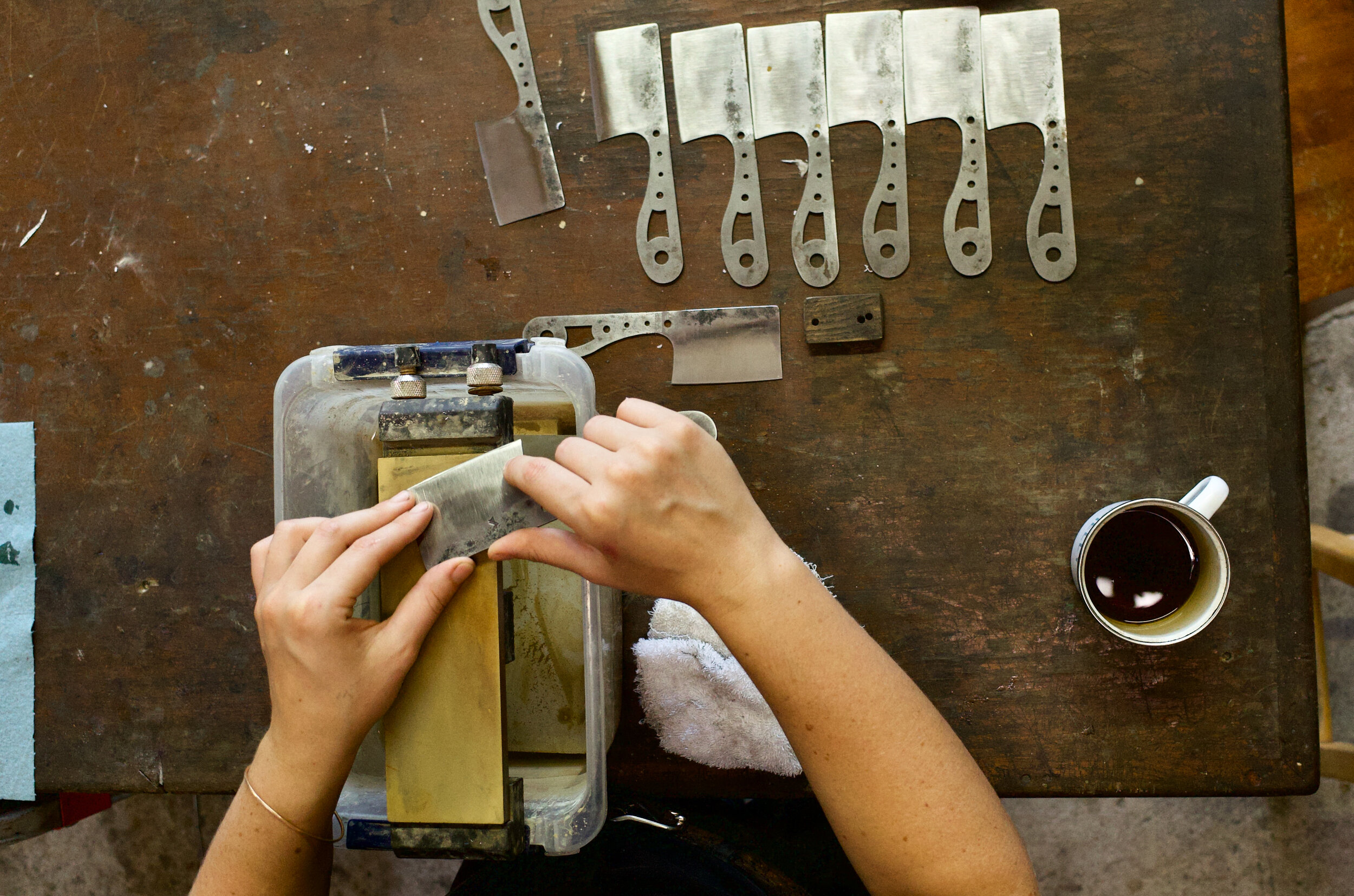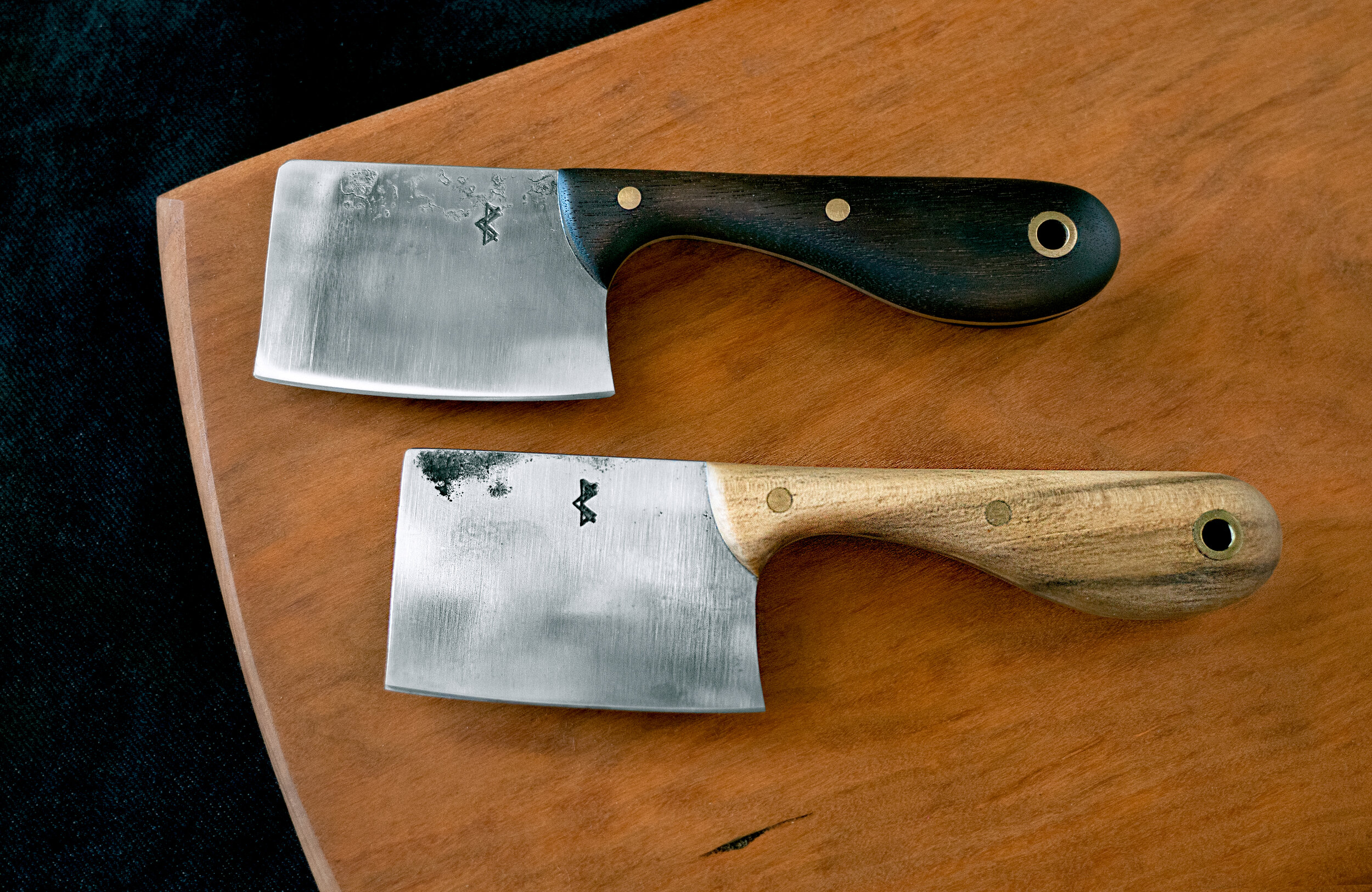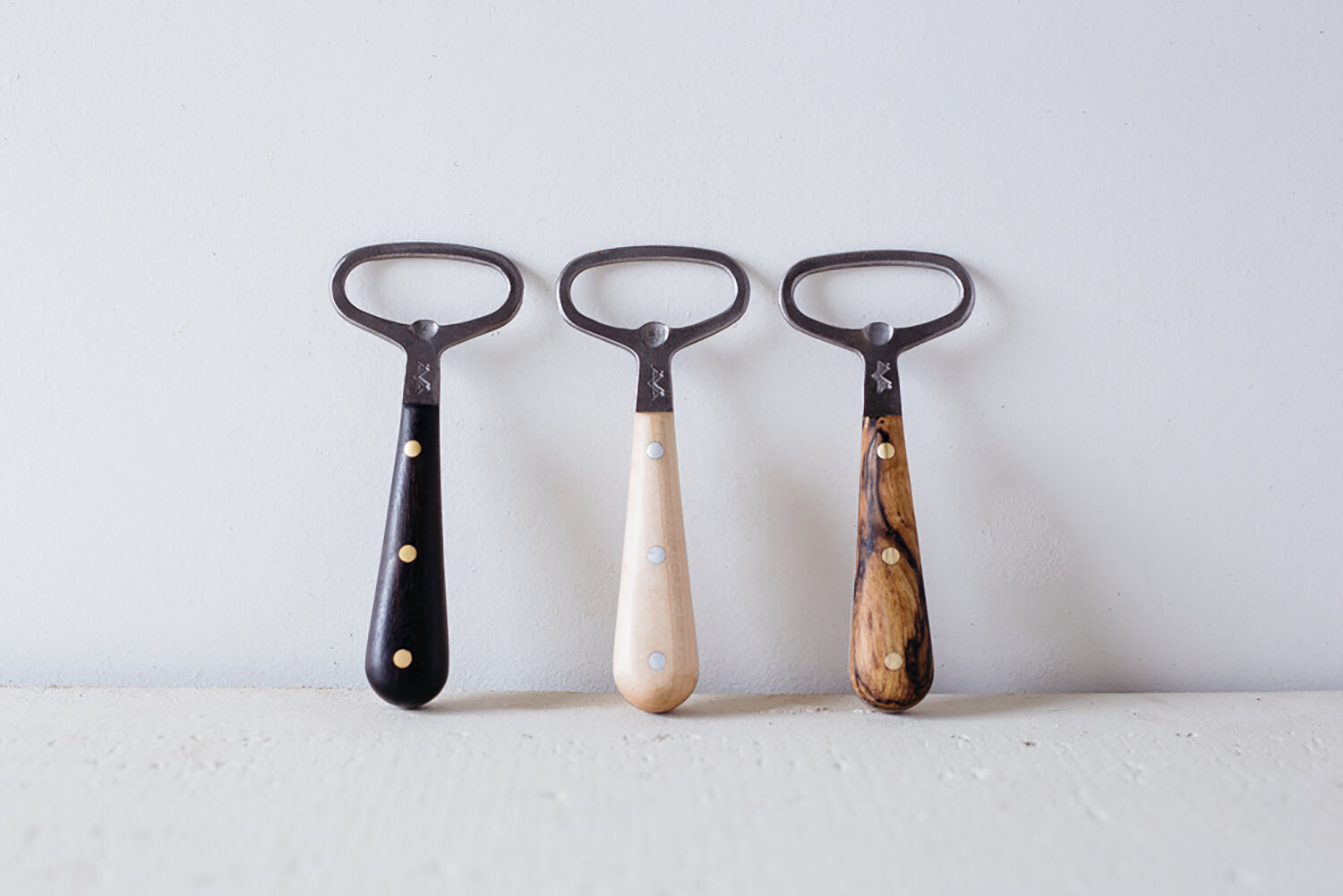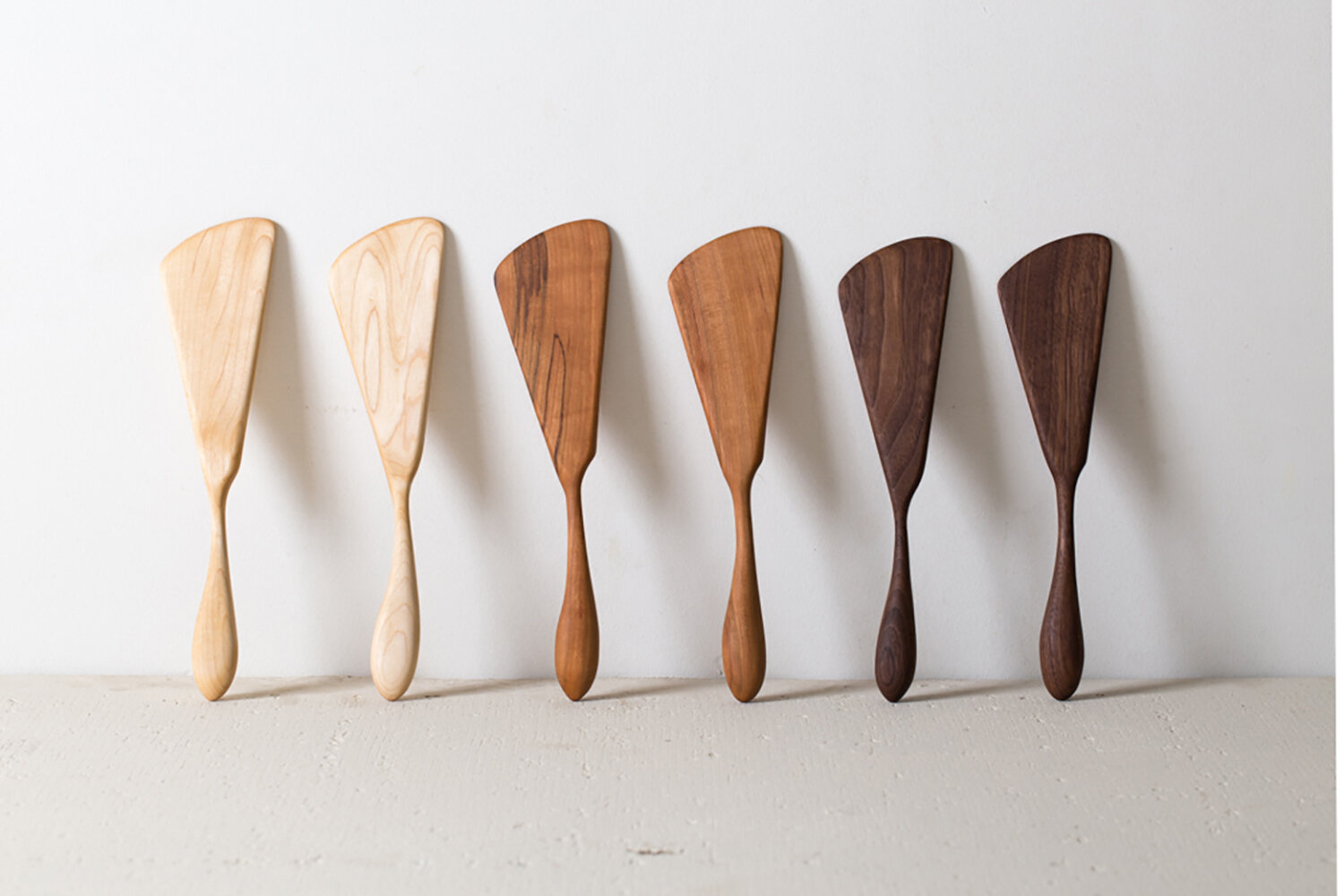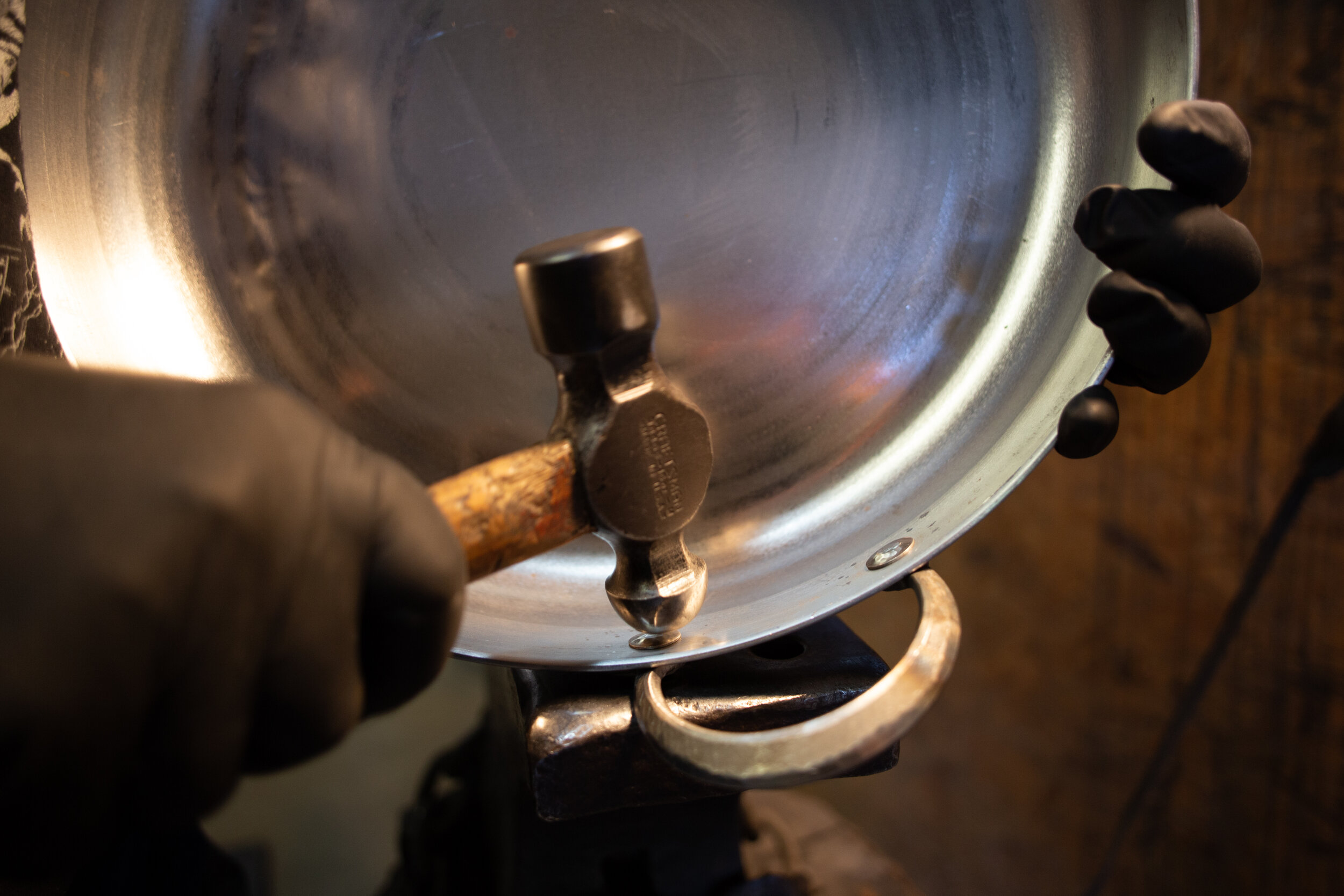Committed to craftsmanship, the blacksmith-founded Blanc Creatives forges a new, American-made age of iron.
Written by Jenn Thornton
After years in the world of custom architectural iron, Corry Blanc went seeking artistic freedom, the space to produce exactly what he wanted without the dictates or restraints of a corporate overlord. Ah, the dream of a dreamer. Not really. He founded an ironworks in Charlottesville, Virginia, attached his name to the operation, and made Blanc Creatives a force in the world of hand-forged culinary tools.
Today Blanc Creatives is a full-fledged company, only run like a concept, with shop assistants working in metal and wood, a table top and peripherals component, and even an in-house yoga instructor. Put another way: it’s the sum of its many parts, all of them interesting, talented people that, together, form an old-school guild in a new-world way that melds art and craft to produce sturdy, cannily handcrafted cookware.
“I like to stick with classic designs and throw a bit of flair to make them stand out.”
For Blanc Creatives, it is not as much about reinventing the wheel as is about making it better than it’s ever been. “I like to stick with classic designs and throw a bit of flair to make them stand out,” says Blanc, who scours old cookbooks, culinary catalogs, the Internet and his own kitchen to see what might be missing, then devises an idea. Durability and functionality are brand bona fides and signatures of products ranging from cookware to barware to bakeware. The most evergreen of offerings is the medium skillet—a beauty, and a beast, unfailingly reliable in any hands (starter or skilled).
“In the beginning, the amount of tooling I had was very minimal and the process was long and tedious,” Blanc shares. “As the company has grown, I’ve been able to embrace modern tooling and techniques, which has allowed us to streamline the design process and focus on learning new techniques and honing our overall craftsmanship.” In this he is an authority, a part, as he is, of the larger blacksmithing community in Charlottesville, where his first blacksmithing job was at Stokes of England, one of the oldest shops in town, and a “binding force” for a lot of local ‘smiths whose espirit de corps. This fellowship is supported by the Virginia Institute of Blacksmithing, which is just over the mountain in the Shenandoah Valley, and history.
Blacksmithing, which dates to ancient times, was particularly indispensable in colonial America, and in life out West, where blacksmiths applied their trade in a whole host of productions, including the Hollywood Western. (Consider: Alamo Village. The original set from John Wayne’s directorial debut is now a major tourist attraction in Texas and features—as of course it would—a blacksmith shop.) As past is present, the growth of Blanc Creatives speaks more broadly toward a larger shift to handcraftsmanship.
To this end, “Blanc Creatives will continue to expand the body of work to encompass a larger variety of culinary tools for the home consumer as well as the professional chef,” says Blanc, whose ideal scenario includes “complementary departments and materials such as ceramics, glass, textiles, on top of our wood and metal shops, to round out a cohesive and complete culinary catalog.” He’s certainly hammering away at it.
Photos courtesy of Blanc Creatives
